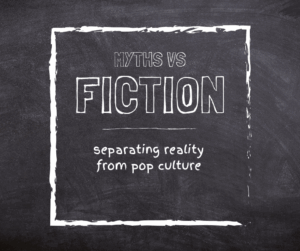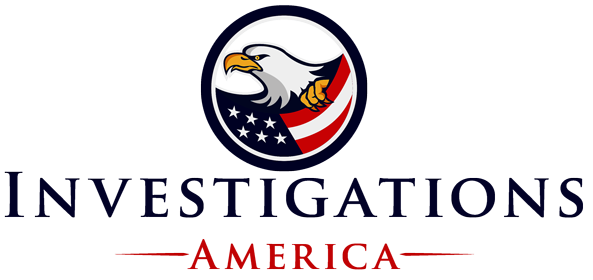The Legal Limits of Surveillance: What We Can and Can’t Do

- Common Misconceptions
The world of private investigation is often glamorized, but many practices portrayed in media are illegal or inadmissible:
- Wiretapping or phone hacking: PIs cannot legally intercept phone calls or hack digital accounts without proper consent or authorization. Such actions are against privacy and wiretapping laws.graycatpi.com+3Law Terminology+3victorypi.com+3UrbanMatter+9chailifesecurity.com+9graycatpi.com+9
- Hacking emails or devices: Unauthorized access to private data is a criminal offense, not an investigative technique.The Times
- Trespassing or breaking in: Entering private property without permission—including homes, offices, or locked vehicles—is illegal and evidence obtained this way is inadmissible.asiprotects.com+3graycatpi.com+3Salazar Investigations+3
- Secret GPS tracking: Placing tracking devices on someone’s vehicle without their consent is illegal in many states—California being a notable example.upstateprivateinvestigators.comWikipedia
- Impersonating law enforcement: Private investigators are not allowed to impersonate officers or claim law enforcement authority.LegalClarity+10chailifesecurity.com+10Salazar Investigations+10
These myths persist largely due to sensational portrayals in TV and film.chailifesecurity.com
- What PIs CanLegally Do: Laws and Legal Frameworks
Surveillance in Public Spaces
PIs may observe, photograph, or video individuals—but only in areas where there’s no reasonable expectation of privacy (e.g., parks, sidewalks).Salazar Investigations+3Roberts Investigative Services+3chailifesecurity.com+3
Accessing Public Records
They can gather information available from public sources—such as court documents, property records, criminal filings, and marriage/divorce records—for investigative purposes.Roberts Investigative Services+1
Background Checks
Investigators can conduct thorough background research—but must comply with laws like the Fair Credit Reporting Act (FCRA) for credit and financial data.F3 Investigations+7graycatpi.com+7OnCall Legal+7
Witness Interviews
Gathering information through interviews—of friends, colleagues, or neighbors—is permissible and often essential.Salazar Investigations
Serving Legal Documents
In many jurisdictions, PIs are authorized to serve process documents like subpoenas or summons.asiprotects.com+10Salazar Investigations+10victorypi.com+10
Technology Use with Restraint
While they may use tools like social media searches or GPS tracking, they must ensure any data collection respects privacy laws and obtains proper consent or authorization.graycatpi.com
Torts and Privacy Laws
U.S. tort law provides protections such as intrusion upon seclusion—covering physical or electronic intrusions into private affairs—and other areas like “public disclosure of private facts,” “false light,” and “appropriation.” Hacking or unauthorized surveillance may violate these protections.Wikipedia
- Laws That Apply to Surveillance & Evidence-Gathering
Federal and State Privacy Laws
- Fourth Amendment protections limit what law enforcement can do—and private PIs must tread carefully with surveillance tools like tracking devices.Wikipedia+1
- Data protection laws may apply, particularly in places like the UK where private operators must handle data responsibly to avoid harassment or privacy violations.The Guardian
Tort Law
As noted, intrusions—even without publication—can give rise to liability.Wikipedia
Licensing and Industry Regulation
In the U.S., most states require PIs to be licensed, insured, and to follow professional standards. Ethical breaches can lead to license revocation or legal action.LIA Security & Investigations+5Conflict International USA+5Wikipedia+5
- Ethical Dilemmas and Gray Areas
Example: Corporate Espionage Gone Too Far
A high-profile UK case illustrates the dangers of unregulated surveillance. Individuals were followed, their homes spied upon using drones, and hidden cameras were used—practices verging on harassment and potential human rights breaches.The Times
A veteran investigator criticized such tactics as excessive, noting, “Putting someone under surveillance is a potential breach of their human rights… You don’t just go: ‘Let’s make them feel really nervous and paranoid.’”The Times
Example: Domestic Violence Risk
In Australia, a tragic case unfolded when a man with a history of domestic violence hired a PI to spy on his family. No due diligence was done by the PI to assess risk. This failure contributed to a preventable tragedy, prompting calls for regulation and client screening in the PI industry.The Guardian
Grey Areas: Data Justification and Harassment
Even legitimate surveillance may cross into harassment depending on scale and context. Courts may weigh whether methods are proportionate, necessary, and in the public interest, or excessive and misuse of sensitive personal data.The Times+1
- Statistics & Industry Context
- The global private investigation industry reached $18.2 billion in revenue in 2022.The Times+1
- In Australia, of about 3,147 spyware buyers studied, 25% had a recorded history of domestic violence, highlighting serious ethical risks within unregulated markets.The Guardian
Conclusion
Private investigators serve an essential—and lawful—role when they operate within legal and ethical frameworks. Their toolkit includes surveillance in public spaces, public-record research, background checks (with legal compliance), interviews, and legal document service. However, in matters of privacy, wiretapping, trespass, impersonation, or covert tracking, the line is clear—but sometimes blurred in real-world situations.
Ethical vigilance matters. PIs and clients must ensure investigations are justified, proportionate, and transparent. Regulation—including licensing, background checks for clients, and clear ethical training—is key to safeguarding both targets and investigators.
